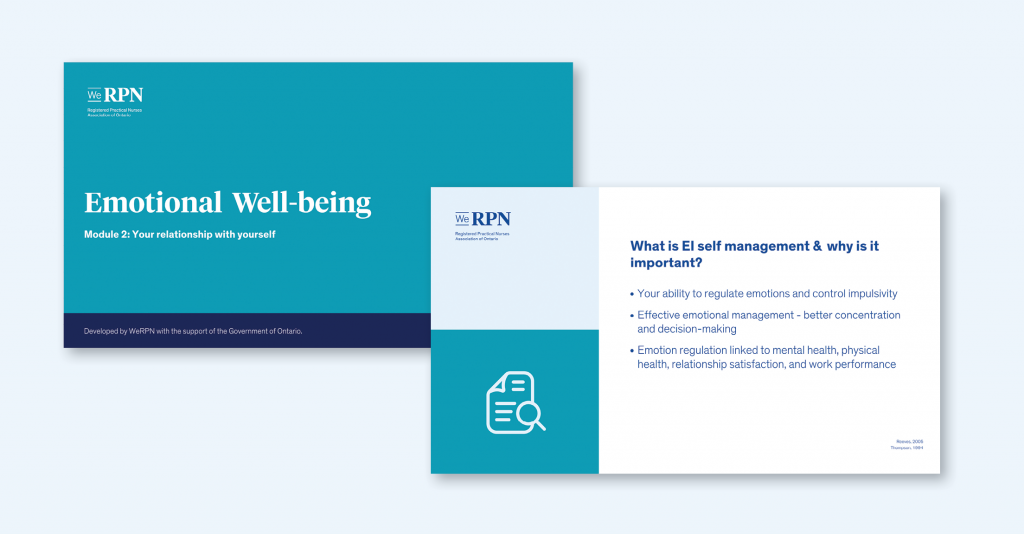Background
Resilience is an individual’s ability to stay healthy, recover, learn from unexpected setbacks, and proactively prepare for future work challenges. In 2016, WeRPN prioritized the development of self-care resources in direct response to valuable feedback gathered at focus groups across Ontario from Nursing Leaders and Registered Practical Nurses.
Nurse leaders face increasing demands in healthcare, leading to high rates of burnout, compassion fatigue, and turnover. Resilience is a critical competency, helping leaders manage stress, maintain job satisfaction, and sustain high-quality patient care.
The evidence supports that self-care practices and leadership education on resilience are vital for navigating the complex healthcare system demands. Strengthening resilience reduces burnout, improves job satisfaction, and promotes work-life balance. Importantly, it can contribute to a dynamic yet sustainable environment of high-quality care, leading to better patient outcomes, improved staff retention, and organizational stability period.
- Strengthening resilience improves work-life balance and staff retention
- Resilient nurse leaders foster positive work environments, enhancing team morale and patient safety
- Resilience is not innate – it can be developed through structured self-care and leadership strategies.
Objective
The Self-Care toolkit was designed to provide nurses with evidence-based strategies to assess, build, and sustain resilience. This comprehensive toolkit includes a variety of assessment tools that help individuals evaluate their current self-care practices, along with actionable strategies for maintaining and improving overall health.The self-care framework: Four pillars of resilience:
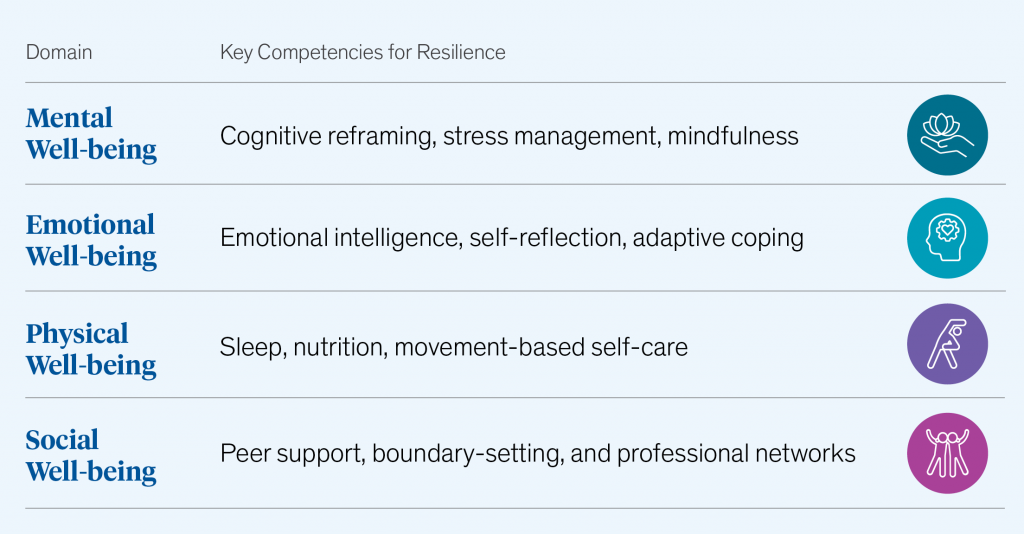
The self-care framework:
Four pillars of resilience
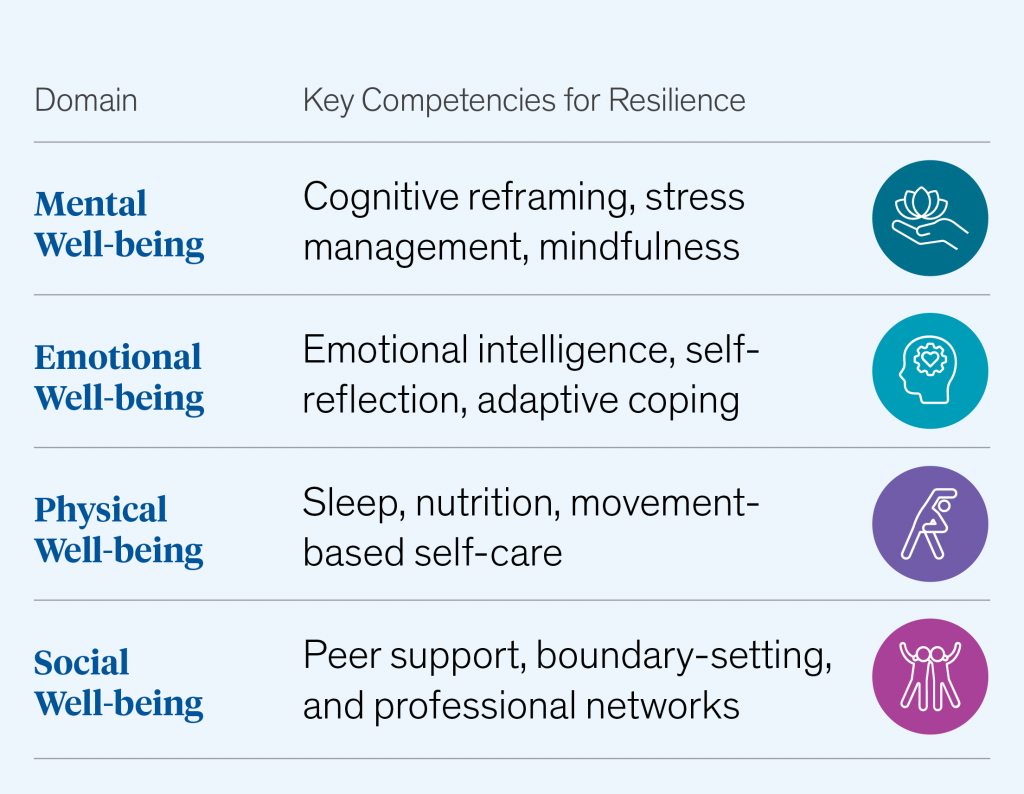
Theoretical Basis
Resilience is a dynamic process shaped by both personal attributes and external resources. The Self-Care Toolkit aligns with psychosocial resilience models, emphasizing cognitive, emotional, behavioural, and social strategies to foster adaptability in nursing practice.
Available on the practice resources page at werpn.com. Each domain contains self-directed learning modules, featuring downloadable resources, videos, and apps that enhance the learner’s objectives. Nurses will use this framework in their professional and personal lives by engaging in guided self-assessment and goal-setting exercises.

Step 1: Self-Assessment for Resilience
Readiness for Change: self-awareness is the foundation of behavior change. Nurses must assess their readiness to implement resilience strategies, recognizing that even small, incremental changes lead to long-term benefits.
Assessment Tool: the Canadian Mental Health Association (CMHA) Mental Health Meter is an assessment tool that evaluates key resilience factors, including the ability to enjoy life, resilience, self-actualization, and flexibility.
Post-Assessment Reflection Questions:
Do my results align with my self-perception?
Which domains require attention?
How do these factors impact my professional practice?
Step 2: Strategies for Building Resilience
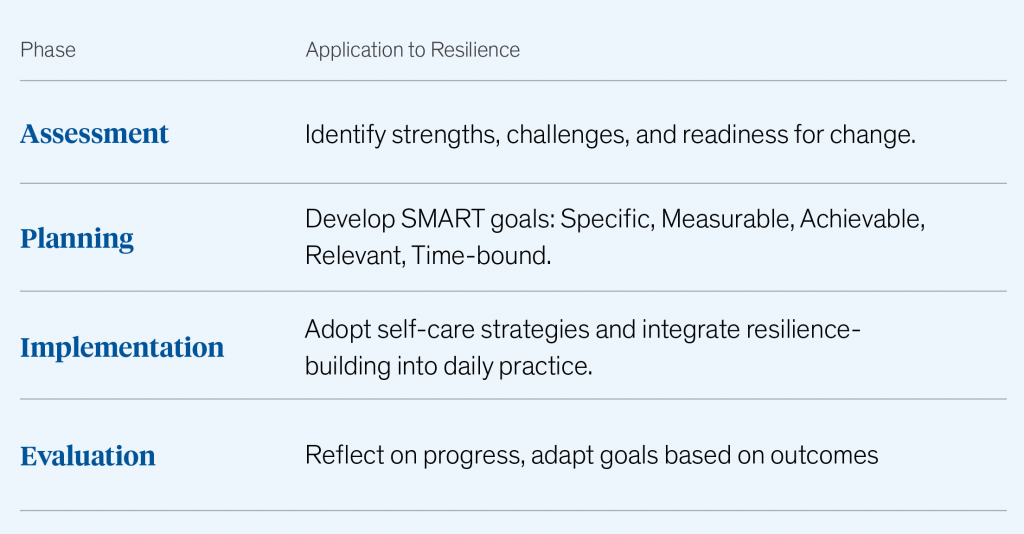
Step 2: Strategies for Building Resilience
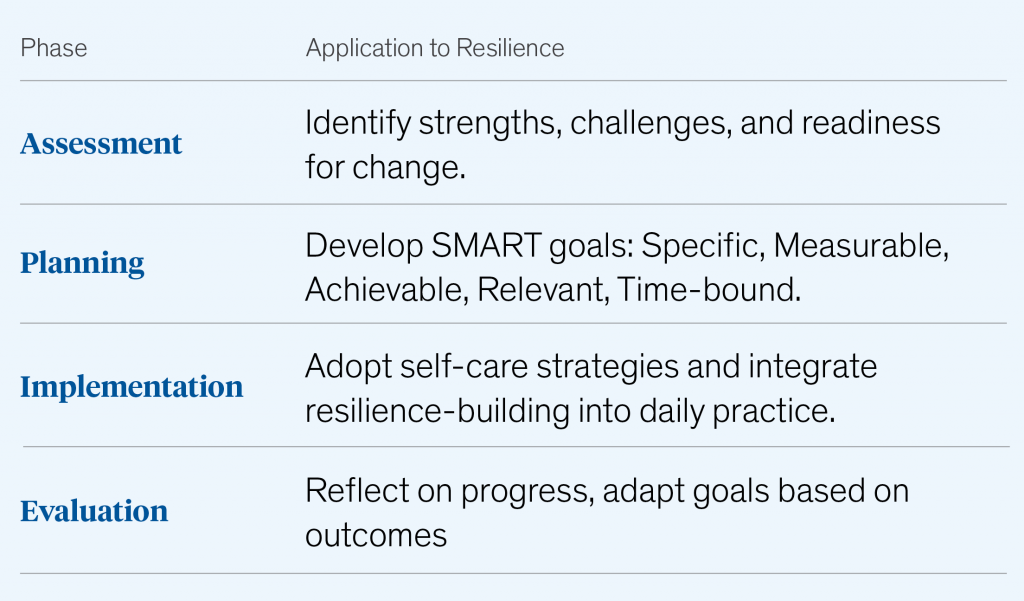
Reflection Questions for Resilience Development:
How do I typically respond to stress?
Am I using adaptive or maladaptive coping strategies?
Do I engage in proactive stress management or react in crisis mode?
Step 3: Developing an Individualized Resilience Plan
Blueprint
Writing down plans increases commitment and follow-through.
Feasible goals
Focus on small, attainable steps to build momentum.
Accountability
Peer support and mentorship enhance sustained behaviour change.
Implementation Tool
Coping Strategies Planner: identifies triggers, plans responses, and develops coping mechanisms.
Evaluate and Adjust
Reassess progress to determine if the plan is effective. If gaps are identified, modify the plan accordingly.
Practical Takeaways for Nurse Leaders:
Role-model resilience to create a culture of psychological safety.
Integrate resilience strategies into leadership development programs.
Use self-assessment tools to promote ongoing professional reflection.
Conclusion:
Advancing Resilience in Nursing Leadership
Resilience is a learned competency that enhances both personal well-being and professional effectiveness.
Structured self-care practices are essential for sustained personal and
professional resilience.
The Self-Care Toolkit provides practical, evidence-based resources to strengthen resilience.
Nurse leaders must prioritize resilience-building strategies to improve both individual and organizational well-being.
REFERENCES
Herrman, H., Stewart, D., Diaz-Granados, N., Berger, E., Jackson, B., & Yuen, T. (2011). What is Resilience? The Canadian Journal Of Psychiatry, 56(5), 258-265. doi: 10.1177/070674371105600504
McEwen, B. S., & McEwen, C. A. (2017). Resilience: The capacity for adaptive living. Springer.
Prochaska, J. O., & DiClemente, C. C. (1997). Stages of change in the modification of problem behaviors. Progress in Behavior Modification, 28, 183-218.
Sheikhrabori, A., Gholamzadeh, M., & Ghorbani, R. (2022). Workplace Resilience Among Nurses: Implications for Organizational Well-being. Nursing & Health Sciences, 24(3), 243-258.
